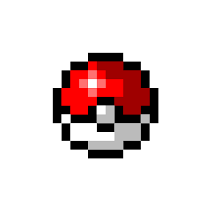"Endgame: Niantic's predecessor to Pokemon Go"

#PokemonGO: Seeing as this is a research-based community, and largely made up of people who were unfamiliar with Niantic prior to Pokemon Go, I thought you guys might be interested in a little history lesson on a project that I strongly believe evolved into the game we now know as Pokemon Go.Back in early 2014, while Ingress was enjoying some degree of success and Niantic was still under the wing of Google, they announced the development of their second game. Endgame: Proving Ground was intended to be a tie-in to a book series, Endgame by James Frey, and was promoted heavily at Ingress Anomalies in the beginning of 2015, including a "crossover" character medal. An Alternate Reality Game promotion was also running at the site Ancient Societies, which has since closed. The ARG came to an end in August 2015, right before Niantic spun off, and almost nothing has been heard of about it since (aside from finally giving out those badges to people who earned them).So what's all this have to do with Pokemon Go? As it turns out, the pre-release videos and promotions showing early beta footage of Endgame bears an uncanny resemblance to our modern game.At an event in Vegas after an Ingress anomaly, the writers discuss how endgame will work, claiming it will offer PVP and points equivalent to portals to fight over, much like gyms.An article about Endgame features concept art showing customizable characters, which Ingress never had but Pokemon Go obviously does. Notably, this mentions how defending the gym-equivalents could be controlled manually, or will be defended by the computer AI if no one opts to do so, confirming that these were much more akin to gyms than Ingress portals. Given Hanke's recent comments, we may soon have a similar manual option in Pokemon Go.An image of the early in-game look was also shared, which explained that markers could be assigned to these gym-equivalent spots, which are limited in terms of how many can be there and signal what you have to fight to claim it for your team. This is functionally the same as assigning a pokemon, and even looks somewhat similar in terms of markings for factions and encouraging teamwork.A brief interview with a member of Niantic discusses how visiting these spots will allow players to collect items, or purchase them through microtransactions (something that wasn't in Ingress at the time, and still doesn't offer ordinary in-game items). It specifically states here the focus would be on dueling, much as the focus in Go is on battling.The smoking gun, I believe, is the timing of Pokemon Go's announcement and the rapid speed of its release. Niantic spun off from Google in August of 2015; all communication on Endgame ceased at that point, and Niantic had to quickly figure out a sustainable way to continue operating, since up till this point they had not had any microtransactions or really even much merch for sale. Pokemon Go is announced on September 10, 2015, and Niantic gets a major infusion of cash from Nintendo to keep the doors open. Pokemon Go is then rushed through development for a closed beta in Japan starting March 28, 2016, in the US in May, and finally full release in July.It's my theory that a significant amount of the basic design work done for Endgame was repurposed to give a head start to Pokemon Go. Gyms function the way they do because they're built on plans originally formulated for this game, and rather than a character using weapons, it quickly became pokemon with limited movesets. There's a small clip of combat gameplay out there, which looks like it's probably about as complex as Pokemon Go gym battling... combine this with the claiming of gym-like spots, defended by AI, and collecting items/resources by going from place to place and I think there's a good case to be made.I don't know how much insight this really provides, but I hope it's interesting to you. I've been an Ingress player for a while, so I watched all this unfold and it's always seemed pretty clear to me that resources from Endgame were brought into PoGo to shorten development time, but I've never seen anyone discuss it before. Thankfully, FevGames still has a lot of these articles and videos archived to fall back on when I went to make this post. If you have any questions, feel free to ask! via /r/TheSilphRoad http://ift.tt/2kR7IOA
"Endgame: Niantic's predecessor to Pokemon Go"
!["Endgame: Niantic's predecessor to Pokemon Go"]() Reviewed by The Pokémonger
on
14:37
Rating:
Reviewed by The Pokémonger
on
14:37
Rating:


No comments